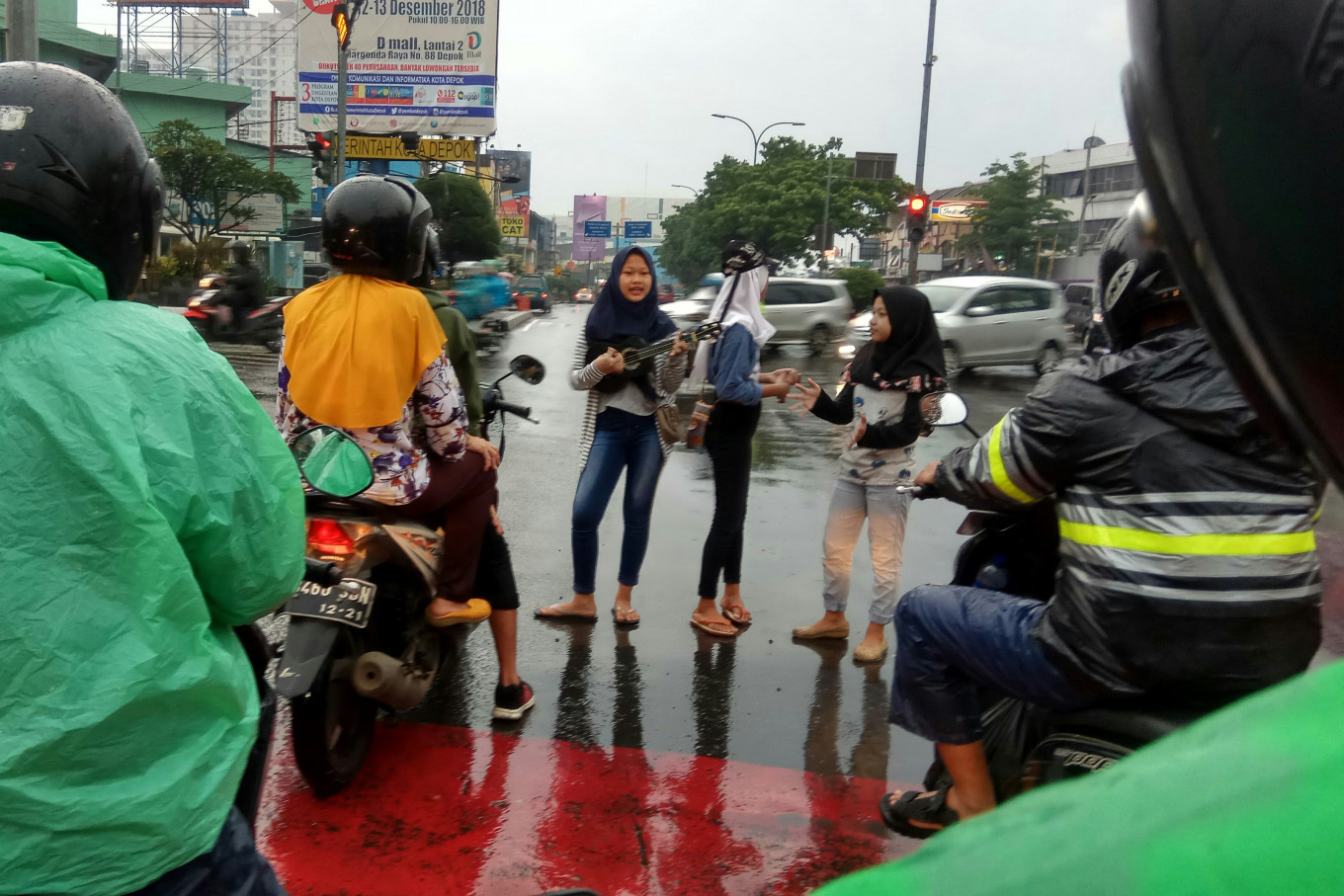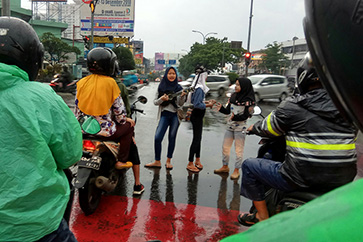Popular Reads
Top Results
Can't find what you're looking for?
View all search resultsPopular Reads
Top Results
Can't find what you're looking for?
View all search resultsRegulate street performers instead of punishing them
Suitable locations must be identified for busking. Some are better than others, and some may be restricted entirely.
Change text size
Gift Premium Articles
to Anyone
A
t the end of September, an outraged public demanded lawmakers postpone the passage of the revised Criminal Code (KUHP), which included the crime of vagrancy. The proposed punishment for the offense was a fine of Rp 1 million (US$ 71.19).
Article 505 of the KUHP makes it a crime for people to wander from place to place without a visible means of support. This law and Article 504 on begging have been used to treat busking as a criminal offense. Both the vagrancy and begging laws are enforced in many cities and can carry a jail sentence.
City streets in Indonesia now contain construction workers, street vendors, taxi drivers and others who each take their own culture, characteristics and modes of survival to the city. Although busking has always been an integral part of everyday street life, it is often under-recognized.
Busking is an egalitarian form of cultural expression and, for some, a profession. Buskers and other street performers are an important addition to any city’s cultural life. If, however, these creative workers are not sufficiently supported with clear and consistent policies, busking can have negative impacts on residents, businesses and visitors.
Some cities like Jakarta and Yogyakarta have regulated busking, but these regulations do not balance the needs of buskers with those of other citizens, nor do they provide a clear way for buskers and street performers to practice their trade.
Jakarta Bylaw No. 8/2007 on public order, for instance, still criminalizes busking. The bylaw on vagrancy and begging in Yogyakarta also makes creative performances like the traditional jathilan (horse dance) illegal because they may be regarded as begging.
There are a number of ways buskers can contribute to the social, economic and cultural fabric of a city. Buskers and street performers provide accessible entertainment for the general public. Busking is also instrumental to the local creative economy, particularly tourism. It should be treated as the valid means of making a living that it is. The spontaneous nature of busking can help give color to different spaces in the city. For example, buskers and street performers enliven Kota Tua, Jakarta.


















